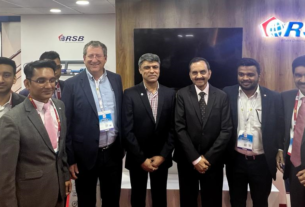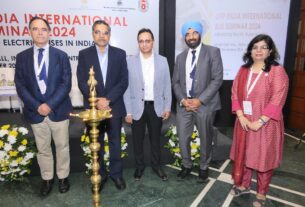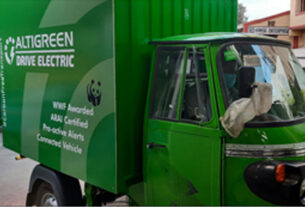
Pankaj Sharma, Director and Co-Founder, Log9 Materials, explains that the company has various innovations for storing energy that can help vehicle manufacturers’ transition to electric while providing fast-charging services. Additionally, the company has established India’s first and largest commercial-grade Lithium-ion cell manufacturing facility, which adds value to the entire vehicle battery ecosystem, outlines Rajesh Rajgor
Log9 Materials is an Indian nanotechnology start-up that is focused on developing environmentally-friendly products with a particular emphasis on energy storage solutions. Founded in 2015, the company has created unique Lithium ion-based batteries that can charge electric vehicles (EVs) in minutes, compared to the four to six hours typically required using conventional batteries. Log9 Materials has partnered with several original equipment manufacturers (OEMs) sharing a similar vision of revolutionising the EV mobility sector in the country.
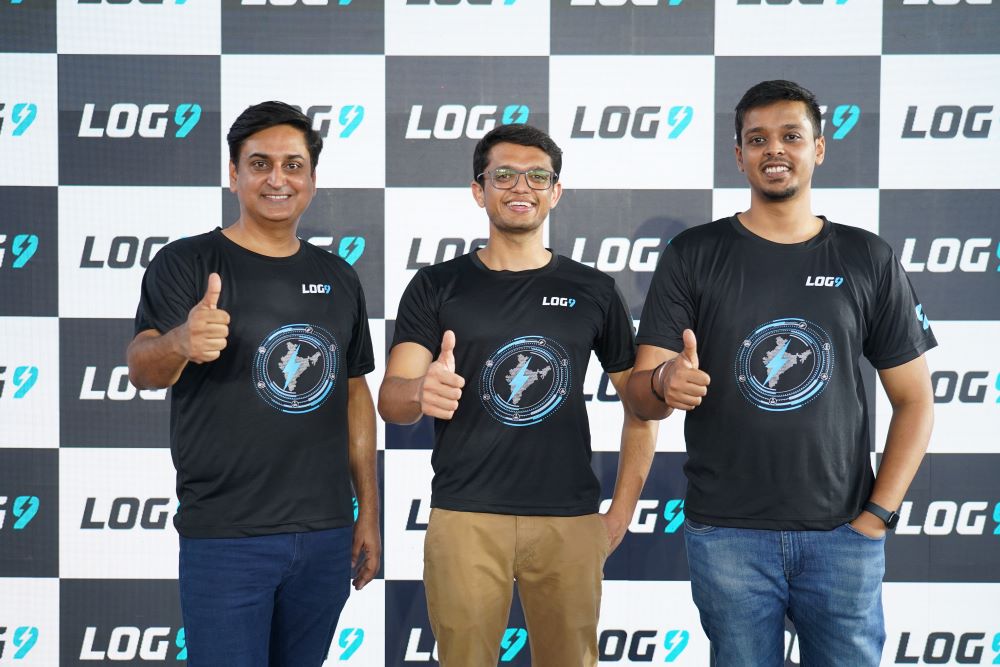
(Left to Right) Mr. Pankaj Sharma, Co-founder & Director; Dr. Akshay Singhal, Founder & CEO; Mr. Kartik Hajela, Co-founder & COO
The deep-tech start-up powers their vehicles with its fast-charging and long-lasting EV batteries. The company is also working on optimising the production and stability of its batteries and strengthening its supply chain and has already earned a name by associating with two-wheeler and three-wheeler OEMs in India. “We have been successful in deploying over 3,000 batteries in the market and are focusing on developing our fast-charging batteries for commercial vehicles, two-wheelers and three-wheelers,” informed Pankaj Sharma, Director and Co-Founder, Log9 Materials.
Log9 Materials’ innovative technology has been recognised globally and has attracted the attention of major investors, including the Indian energy storage solutions provider Amara Raja Batteries Limited. Strategic investments from Amara Raja Batteries and Petronas have enabled Log9 Materials to expand its production capacity to 125 MWh of batteries per month, with plans to scale up to 250 MWh per month in the near future. It is apparent then that the company is rightly attuned to the needs of the electric vehicle industry and is poised to match the demands of the future.
Beginning of Accessible Charging Source
Log9 Materials was founded in 2015 by Akshay Singhal, who was able to synthesize graphene using a simple and scalable chemical process. Graphene, which was first isolated in 2003-04, is a revolutionary material with a wide range of applications in fields such as electronics, energy and biomedicine. It is an excellent conductor of electricity and heat, and is stronger than steel, yet flexible and transparent. However, its production is complex, expensive and not widely available in the market.
Log9 Materials saw an opportunity in using graphene as a secret source or ability of the company and began to explore deep-tech applications. “We realised that by working at the atomic structure of graphene, we could modify its properties and make it behave the desired way,” shared Sharma. For instance, the company developed an oleophilic graphene molecule that could absorb oil, and modified graphene to absorb pollutants from the air. The company’s entry into the energy storage systems market began with the development of an aluminium air fuel cell. This fuel cell is similar to an engine, but instead of putting fuel, other materials are used to generate energy.
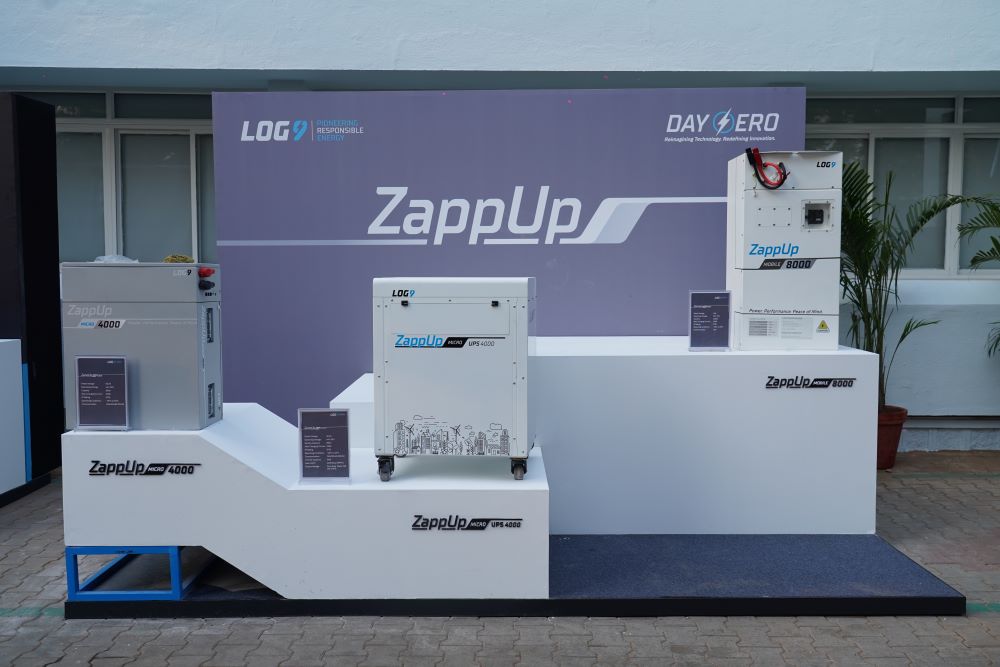
“Log9 Materials used aluminium as a fuel to generate electrical energy. However, while the fuel cell generates energy, the energy needed to be stored somewhere, and that’s when we developed ultra capacitors and Lithium-ion cells. These cells can be charged and discharged very quickly and can go through over 40,000 cycles of charge and discharge. They also have a very long life of up to 20 years,” revealed Sharma. The current Lithium-ion batteries in the market are not designed for Indian climate conditions. They work well in controlled environments and at slow charging rates but become unstable in high tropical temperatures.
Log9 Materials decided to work on Lithium-ion cells to improve their charge-discharge properties and temperature resilience. The company was able to come up with ideas, methodologies, designs and materials to improve the Lithium-ion batteries. They made Lithium batteries capable of fast charging and designed to work in high temperatures with minimum degradation. This innovation led to the birth of Log9 Material’s RapidX batteries. The company started building India’s first commercial Lithium-ion cell manufacturing facility in Bengaluru on April 21, 2022.
A year later, the company has fulfilled its promise and the 50 MWh cell production line was inaugurated on April 21 2023, on Day Zero, the company’s technology showcase day. The event witnessed participation from leading scientists, engineers, academicians and government officials, while Log9 Materials took another step towards India’s energy self-reliance and a more sustainable future. “We are proud and delighted at the inauguration of our commercial 50 MWh cell production line which we dedicate to India,” Sharma said. In fact, the start of production is a huge step in boosting the EV setup of the country. As per India’s EV Vision 2030, the Government of India has targeted 30% EV penetration by 2030.
Battery-Powered Transportation
Let’s discuss the application of fuel cell technology in the automotive industry, which is a promising solution for alternative sources of energy. Log9 Materials has developed an aluminium air fuel cell system that generates energy by consuming aluminium as a fuel. The technology has been in development for a while, and the company has built battery storage systems also to store the energy generated by the fuel cell. “Fuel cell technology is commonly used in long-haul vehicles, while rapid charging batteries are suitable for day-to-day use,” said Sharma.
Log9 Materials is currently testing its aluminium fuel cell for stationary power, which can replace diesel generators, and plans to modify it for use as an on-vehicle powered energy generator. “We are also forging partnerships with multiple OEMs for the production of Lithium-ion batteries and have built up significant research and development capacities. The market demand for Lithium-ion batteries has shifted from a focus on price to quality and safety. It is also looking for long-term solutions,” he shared. The EV three-wheeler market has seen growth in Log9 Materials’ batteries being used by the second-largest electric three-wheeler seller.
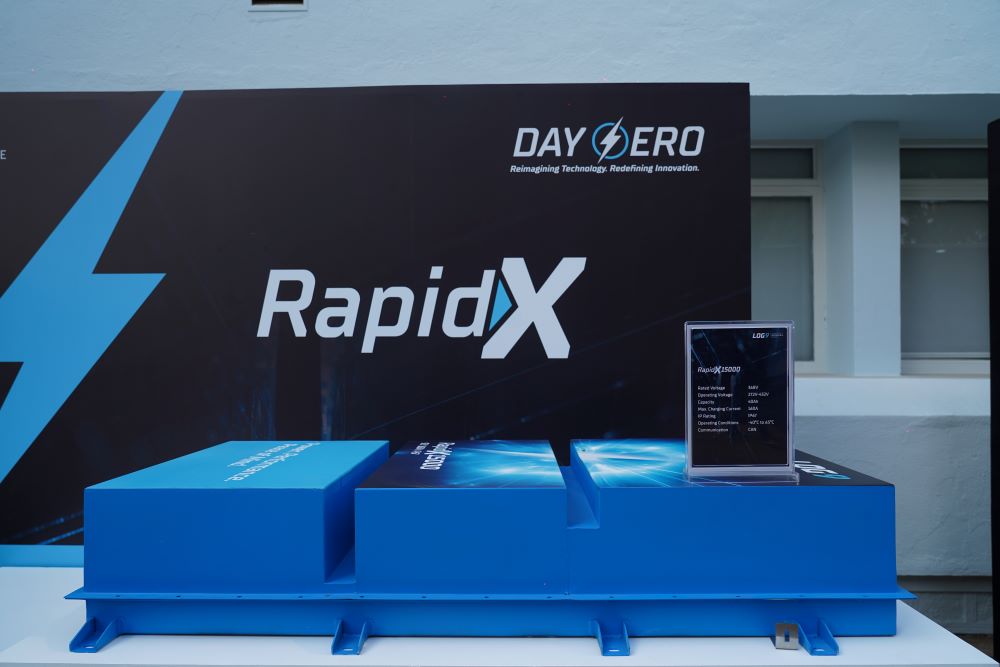
According to Sharma, “The market has evolved over the last 12-18 months with a greater emphasis on engineering and safety in battery manufacturing. Quality is essential in building batteries and safety must be at the centre of the engineering process. The demand in the market is for battery packs that follow safety protocols and have long-term reliability. Customers want batteries that can last for several years, rather than to replace batteries frequently.” In fact, given some recent reports of electric two-wheelers catching fire due to overheating of the batteries and the government ordering an investigation into such incidents, it has become the need of the hour to make EV batteries absolutely safe.
EV’s External Components.
Reflecting on the learning curve of the last 18 months, Sharma believes that the market is warming up to better products. “Previously, finding a partner to sell a cheaper battery was considered a big win. However, there has been a shift in focus to quality and safety. Today, it is not just about making a battery pack work, but about making a battery pack that is very well-tested and safe for consumers. There is now an appreciation in the market for long-term technology that will last for years, rather than a short-term solution,” he said. Customisation is also important in designing batteries that optimise performance by communicating with other components of the electric vehicles.
Log9 Materials engages with OEMs to design batteries that meet the best performance for the vehicle, while also prioritising after-sales service. “A battery is the most important component of an electric vehicle, but it requires seamless coordination with other components such as the powertrain, motor controllers and motor to work efficiently. Customisation, including the size and connection of the battery, is essential to ensure optimal performance. The range of the vehicle determines the size of the battery required,” Sharma stated.
Collaboration with OEMs
When it comes to working with OEMs, it is important to engage with them at the product development stage. “The battery and its power are a defining factor in the performance and product portfolio of the vehicle and account for 50% to 60% of the cost of the vehicle. Therefore, we typically work with OEMs from a vehicle design perspective to customise the battery to give the best performance to the vehicle,” Sharma said. Log9 Materials takes a proactive approach towards working with OEMs by getting involved in the design stage. “Because we are going to be the custodian of the relationship beyond the sale of the vehicle, we get in at the design stage with the OEMs early on,” Sharma said.
“This allows us to construct and customise the battery to give the best performance to the vehicle and ensure that any issues can be addressed quickly and efficiently,” he added. In conclusion, the importance of customisation in the electric vehicle market cannot be overstated. The battery is the heart of the vehicle, and getting it right requires careful consideration and collaboration with OEMs. By working with OEMs in the design stage and customising batteries to fit their vehicles, Log9 Materials ensures that their products perform optimally and provide the best possible experience for the end-user.


